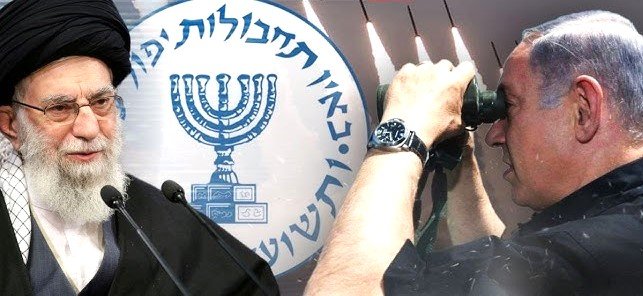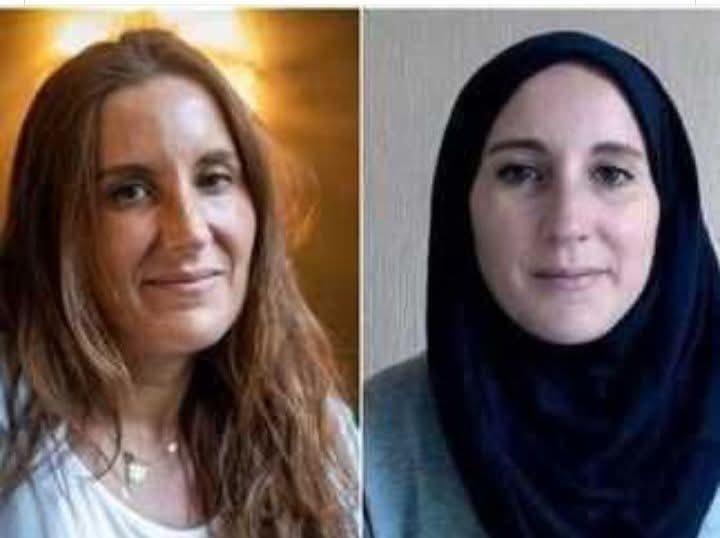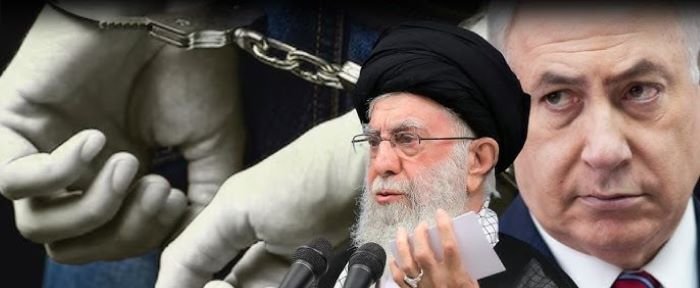
BY MOHAMMAD TARIQUE SALEEM
The Iran’s Ministry of Intelligence VAJA has suffered a series of embarrassing intelligence failures. Among the most high-profile was the revelation that Catherine Perez-Shakdam, a French journalist and ideological convert, allegedly infiltrated Iran as an undercover agent of Israel’s Mossad. While the case of Shakdam gained international attention, it is merely a symptom of a much deeper issue the growing cracks within Iran’s counterintelligence structure.
These failures expose the vulnerabilities of VAJA in confronting a much more sophisticated and adaptive Israeli intelligence agency. The Israeli intelligence agency Mossad has long regarded Iran as its primary target, especially given Tehran’s support for anti-Israel groups like Hezbollah and its ongoing nuclear ambitions. Each of these actions, while publicly attributed to “foreign agents” or “Zionist plots,” has internally raised alarms about Iran’s inability to detect, deter, or disrupt Mossad’s operations within its borders. Over the past decade, Mossad has conducted daring operations inside Iran, including:
- The 2018 theft of Iran’s nuclear archive from a warehouse in Tehran.
- The assassinations of top Iranian nuclear scientists like Mohsen Fakhrizadeh.
- The sabotage of key facilities such as the Natanz uranium enrichment site.

While much has been written about Catherine Perez-Shakdam, a French national who presented herself as a devout Shia Muslim and pro-Iran commentator, her success in penetrating Iran’s ideological and political networks reflects not individual brilliance, but institutional negligence.
Her access to high-ranking officials, religious institutions, and policy circles without detection indicates a larger pattern of failure. Yet, focusing solely on her risks oversimplifying the broader intelligence collapse within VAJA. She was likely just one among many operatives or informants Mossad has successfully placed or manipulated inside Iran.
One of VAJA’s most glaring vulnerabilities is its reliance on ideological loyalty as a filter for security. Individuals who espouse anti-Western, pro-Islamic Republic rhetoric are often automatically trusted. This blind faith has allowed actors like Perez-Shakdam to slip through the cracks. Mossad appears to have recognized this pattern and exploited it by grooming agents who mimic the values VAJA holds dear.
Iran’s security institutions are often riddled with outdated practices. While Mossad uses advanced psychological profiling, behavioral analytics, and cyber-surveillance, VAJA continues to rely heavily on paper records, personal references, and superficial vetting. In an age of deepfakes, fake identities, and global digital footprints, this traditionalist approach is no longer effective.
Iran’s intelligence ecosystem is fragmented, with multiple overlapping agencies including the Islamic Revolutionary Guard Corps (IRGC) Intelligence Organization and VAJA. Often, these bodies compete for influence, funding, and control, rather than collaborating. This lack of inter-agency coordination has created loopholes that foreign agencies like Mossad can exploit with relative ease.
VAJA has heavily focused on cyber defense, foreign embassies, and known opposition groups, but it has repeatedly underestimated Mossad’s HUMINT (Human Intelligence) operations. Israel’s spy network has proven its ability to build long-term deep-cover operatives, using foreign nationals or dual-citizens who can pass through Iranian security filters unnoticed. VAJA’s reactive, rather than proactive, strategy has failed to anticipate or preempt such threats.
Over the years, VAJA’s focus has increasingly shifted toward suppressing domestic dissent, activists, journalists, and minority groups. This politicization of the intelligence apparatus means fewer resources are dedicated to actual counter-espionage. By prioritizing political control over national security, the agency has become more inward-looking and less capable of identifying external threats.
These systemic failures have not only embarrassed the Islamic Republic on the world stage but have also seriously compromised national security. Mossad’s ability to penetrate Iran’s most sensitive environments has likely yielded critical intelligence about nuclear programs, military plans, and internal decision-making processes.
In response, Iranian authorities have ramped up arrests and purges within the intelligence community, suspecting internal collusion or complacency. But such knee-jerk actions rarely address the root cause. Without genuine institutional reform, strategic vision, and modernization of surveillance techniques, VAJA risks falling further behind in the espionage war.
The rise of Mossad’s covert successes, exemplified by the case of Catherine Perez-Shakdam, must serve as a wake-up call for Iranian intelligence. VAJA’s failures are not isolated or accidental, they stem from deeper structural, ideological, and strategic weaknesses. In the high-stakes world of intelligence, trust without verification, outdated methods, and internal rivalries can cost a nation dearly. Unless Iran reevaluates its intelligence doctrine and adapts to the evolving landscape of modern espionage, Mossad’s victories may only be the beginning.
As of mid-2025, Iranian authorities claim to have arrested dozens of Mossad-linked operatives in recent years, particularly following major security breaches such as the 2020 assassination of nuclear scientist Mohsen Fakhrizadeh and the 2022 sabotage incidents at Natanz and Karaj nuclear facilities. Iranian intelligence sources, especially VAJA and the IRGC Intelligence Organization, have announced the dismantling of several Mossad spy networks, with at least 17 individuals reportedly arrested in connection with espionage or sabotage operations in the last two years alone.
According to Iranian judiciary statements, no fewer than five individuals have been executed since 2020 after being convicted of espionage for Israel, including Alireza Akbari, a dual British-Iranian national and former deputy defense minister, who was hanged in January 2023 for allegedly passing sensitive intelligence to Mossad. However, due to the secretive nature of espionage cases and limited transparency in Iran’s judicial proceedings, the actual number of Mossad agents captured or executed may be higher than publicly disclosed.







